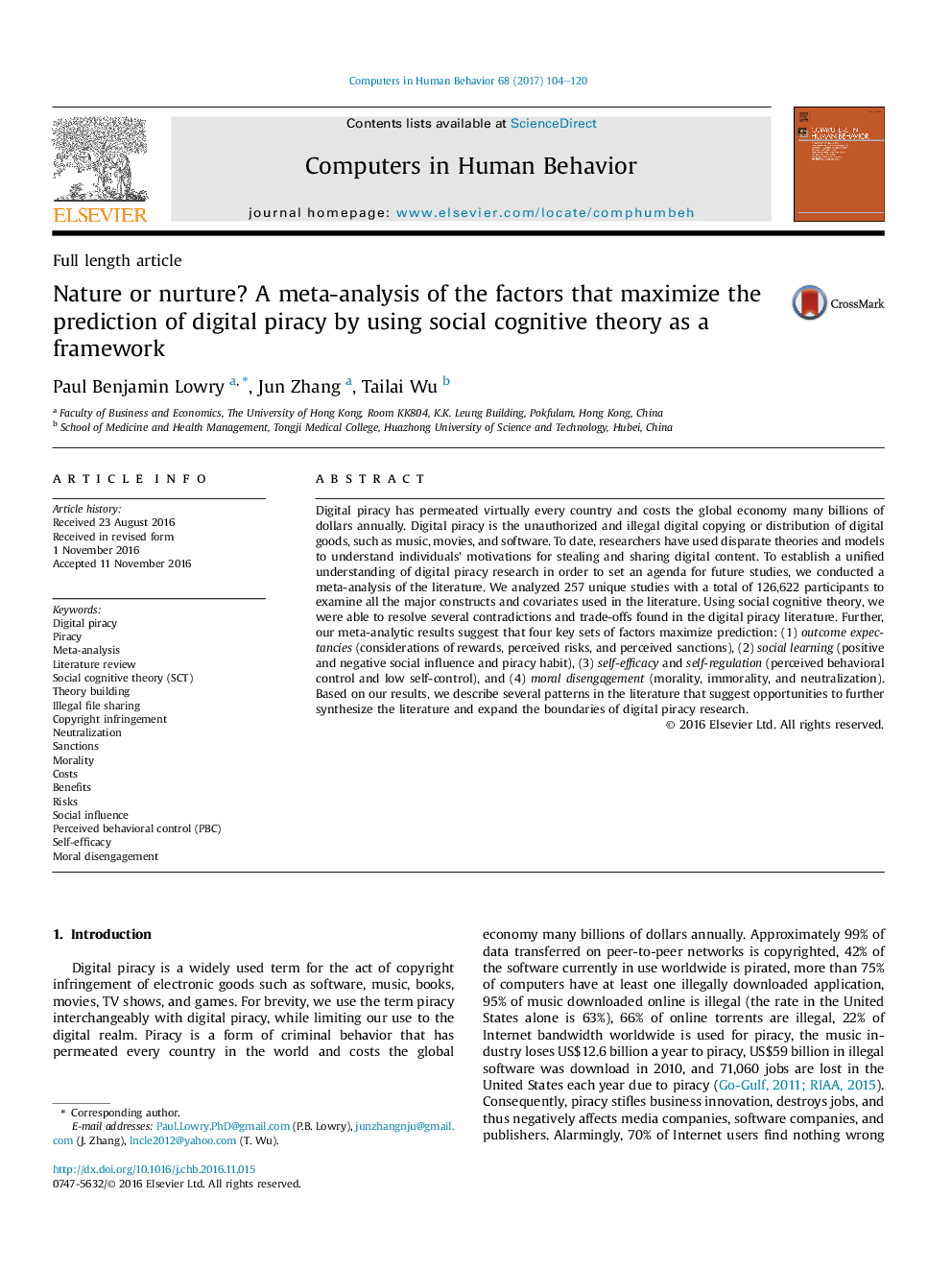ترجمه فارسی عنوان مقاله
طبیعت یا تربیت؟ یک فرآیند تحلیل عوامل مؤثر بر پیش بینی دزدی دریایی دیجیتالی با استفاده از نظریه شناختی اجتماعی به عنوان یک چارچوب
عنوان انگلیسی
Nature or nurture? A meta-analysis of the factors that maximize the prediction of digital piracy by using social cognitive theory as a framework
| کد مقاله | سال انتشار | تعداد صفحات مقاله انگلیسی |
|---|---|---|
| 152136 | 2017 | 17 صفحه PDF |
منبع

Publisher : Elsevier - Science Direct (الزویر - ساینس دایرکت)
Journal : Computers in Human Behavior, Volume 68, March 2017, Pages 104-120
ترجمه چکیده
دزدی دریایی دیجیتالی تقریبا در هر کشوری نفوذ کرده و سالانه میلیون ها دلار آمریکا به اقتصاد جهانی هزینه می کند. دزدی دریایی دیجیتال کپی دیجیتال غیر مجاز و غیر قانونی یا توزیع کالاهای دیجیتال مانند موسیقی، فیلم و نرم افزار است. تا به امروز، محققان نظریه ها و مدل های گوناگون را برای درک انگیزه های افراد برای سرقت و به اشتراک گذاری محتوای دیجیتال استفاده کرده اند. برای ایجاد درک یکپارچه از تحقیقات دزدی دریایی دیجیتال برای تعیین یک دستور کار برای مطالعات آینده، یک متاآنالیز ادبیات انجام دادیم. ما 257 مطالعات منحصر به فرد را با مجموع 126،622 شرکت کننده مورد بررسی قرار دادیم تا تمامی سازه های اصلی و سازوکارهای مورد استفاده در ادبیات مورد بررسی قرار گیرند. با استفاده از تئوری شناختی اجتماعی، ما توانستیم چندین تناقض و کمبودهای موجود در ادبیات دزدی دریایی را حل کنیم. علاوه بر این، نتایج متاآنالیز ما نشان می دهد که چهار مجموعه کلیدی عوامل به حداکثر رساندن پیش بینی: (1) انتظارات نتیجه (ملاحظات پاداش، خطرات درک شده و تحریم های درک شده)، (2) یادگیری اجتماعی (نفوذ اجتماعی مثبت و منفی و عادت دزدی دریایی) (3) خودکارآمدی و خودکارآمدی (کنترل رفتاری درک شده و خودکارآمدی پایین) و (4) انحلال اخلاقی (اخلاق، اموری و خنثی کردن). بر اساس نتایج ما، چندین الگو در ادبیات ارائه می دهیم که نشان می دهد فرصت های بیشتری برای ادغام ادبیات و گسترش محدوده تحقیقات دزدی دریایی دیجیتال است.

